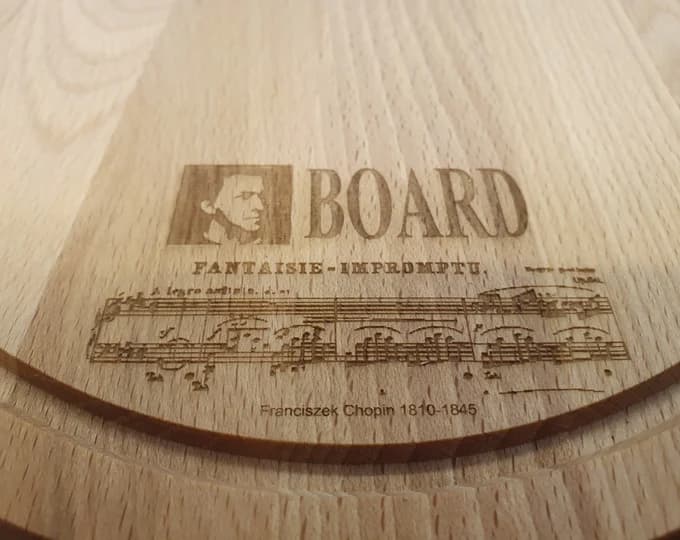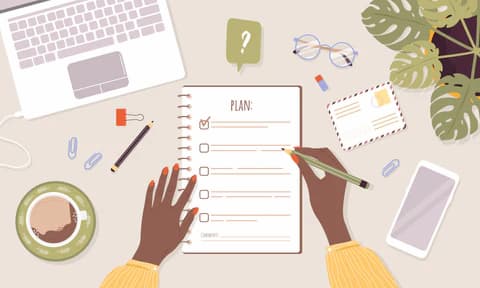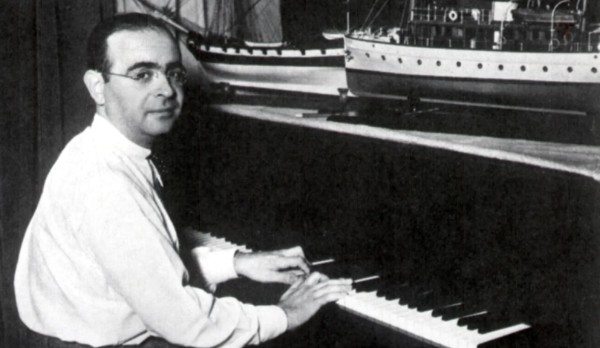Learning an instrument is hard work. Having a good relationship with your music teacher can make everything so much easier. So today we’re looking at five ways to impress your music teacher:
1. Listen carefully to what your teacher has to say, and follow their instructions.

© CMUSE.org
Your teacher is a teacher for a reason. They have expertise and experience. Learning an instrument is a journey, and they’ve taken that journey countless times with other students. They have had many students before you struggle with the same concepts, and they’ve learned how to explain them.
So even if you can’t quite understand why you’re being asked to do something (“Why do I have to learn scales? They’re so boring”), given time, you will understand exactly what they were getting at (“Wow, these scales are perfect to use when practicing bowing patterns!”).
Trust your teacher, and trust their training!
Hilary Hahn – J.S. Bach: Sonata for Violin Solo No. 1 in G Minor, BWV 1001 – 4. Presto
2. Don’t be late. Give adequate notice for cancellation. Don’t argue with cancellation policies, and get them in writing before you even start.

© ThePiano.SG
One surefire way to impress your music teacher is to show respect for their time. You’d be horrified by the number of people who cancel a few minutes before a lesson or argue about cancellation policies.
Make sure you arrive on time. If you’re late, you’re not only stressing out your teacher, but you’re also robbing yourself of valuable instruction time…and risking disturbing the timing of other students’ lessons.
Some delays can’t be avoided. If an unavoidable delay happens to you, make sure your teacher is compensated for any time they spend waiting for you.
3. Resist the siren song of cheesy music-themed holiday gifts.

A Chopin chopping board © Etsy
Most music teachers are very nice people, which is why you won’t often hear them complaining about knickknacks they receive during the holidays. You know the things: “I’m too hot to Handel” aprons or Chopin chopping boards. But chances are, these teachers have a whole kitchen cabinet devoted to witty musical coffee cups that they never use.
But do you know what music teachers can always use? Cash. If you must get the coffee cup, stick some cash inside it, too. Or if you’re friends with other students in the studio, team up to organize a voluntary collection so that your teacher can pay for essentials like food, shelter, and sheet music.
4. Keep a practice journal.

© prodigies.com
There’s a lot happening during a music lesson! We’re learning incredibly complicated information about how to move our bodies, how to listen, how to problem-solve, and more.
It’s so much, it can be overwhelming and easy to forget!
So what’s the solution?
Keep a practice journal!
If you want, your journal can be extremely detailed. When I was playing the violin seriously, I would record my lesson with my phone (with my teacher’s permission, of course) and make pages of notes to study afterward.
But here’s a secret: you don’t need to be that thorough. Even just jotting down three things you remember from the lesson and that you want to work on will be helpful.
Sometimes teachers will even jot down a note or two for you! Ask to see if they’d be willing.
5. Practice regularly. Yes, regularly.
Set an alarm on your phone for a certain time each day, and practice. If you’re taking lessons, practice every day, even if it’s only for five minutes. Teachers can tell when you haven’t.
Having a wildly busy week once in a while is normal. We all know how crazy life can get. But if multiple weeks go by and you find you haven’t had time to practice, it may be time to reassess: do I really want to be playing this instrument if I’m not making time to play this instrument? Maybe some other things need to change in your life in order to prioritize it, or maybe you need new repertoire, or maybe you should come back to your musical studies in a year or two or five. There’s no shame in that, and there are ways to learn more about music in the meantime that are less time-consuming, like going to concerts or listening to recordings.
There are many more ways to impress your music teacher, but these five are a good start. Music teachers, sound off in the comments: what’s the one most effective way a student can impress you?
For more of the best in classical music, sign up for our E-Newsletter



Here are five ways a music teacher can impress and retain me as a senior adult student:
First, treat me as a partner in the learning situation, not the recipient of some immutable truth or way to do things. Androgony requires different skills and approaches by a teacher than does pedagogy.
Second, doing it the “most productive” or “speedy” way is not our goal; having fun and expressing our love of music is more important if we are amateurs and not making our living from music.
Third, allow us to focus on learning pieces we most want to learn that make our heart sing; time fleets ever faster as the years shorten, and we may feel we have no time to learn to play all 24 scales at 165 beats per minute, or take on every single “must play” composer such as Bach or Mozart whom we may not resonate to — as might be interesting to a young conservatory student with many years left in his life’s arsenal.
Fourth, have fun with us: we prefer to “play” music at our age and stage of life, and don’t really “practice” it.
Fifth, a respectful “with all deliberate speed but not just speedy” process and personal relationship is important; give us time and encouragement in lessons to try something the precise way we know we learn best, not just the “best practices” way or how you were taught as a young student; trust our mature judgment because you are a newcomer to knowing us, until you do know us!